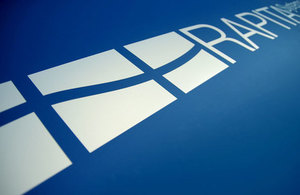Rapita Systems: testing new safety systems for cars and aircraft
A York-based business develops innovative tools to test new vehicle safety systems thanks to European funding support.

Rapita Systems: developing new tools to test safety systems for aircraft, space vehicles and cars
Rapita Systems has developed a new tool, RapiTask, to test safety-critical software in aircraft, space vehicles and cars. The company developed RapiTask with the help of Framework Programme 7 funding.
Rapita Systems received 3 years of funding which it used to set up the PRESTO project. The focus of this project was to improve understanding of how software in embedded systems behaves in different situations. An example of an embedded system is a modern car’s electronic control unit which controls steering and vision systems. In a plane, the software will operate flight controls and landing gear.
The CPUs used in automotive, aerospace and space are low power in comparison with typical laptops or mobile phones. This was making it difficult for the company to collect enough information to develop its testing system. The PRESTO project helped Rapita find a solution to the problem which led to the development of RapiTask.
Accessing the latest research
Dr Guillem Bernat, Rapita Systems’ CEO, said:
We have found participation in EU research programmes to be extremely beneficial to our business strategy. We gained access to the latest research by working with academic partners and other leading edge companies. In the case of PRESTO it was especially useful to work with other tool companies to establish a common trace format that can be used by multiple tools.
Working with end users of the technology we produce solutions that will meet the real needs of our customers. As a result of this, our new tool RapiTask, received focussed testing and evaluation from a very early stage in its development. The funding we received allowed us to dedicate effort to earlier research activities, which will benefit us in years to come, rather than focusing only on short-term outcomes.
Exploring a global marketplace
The company is now ten years old, having originally spun out from research conducted in the Real-Time Systems group of the University of York. Today the company employs over 30 people and has customers all around the world.
Horizon 2020
The Framework Programme 7 funding scheme ended in 2013. Horizon 2020 is now the largest ever European funding programme for research and innovation.
Updates to this page
-
First published.